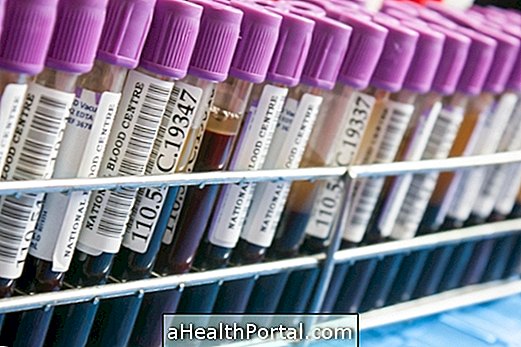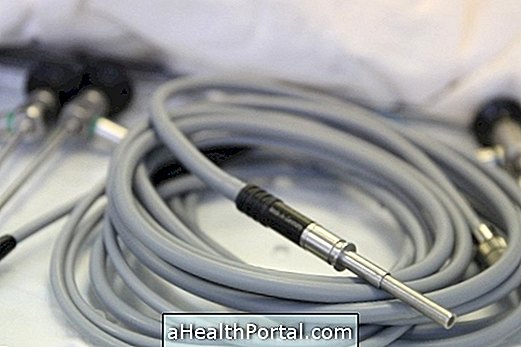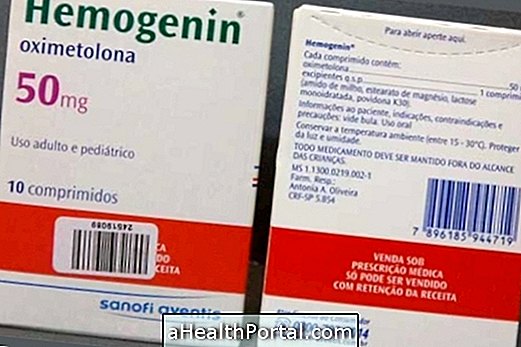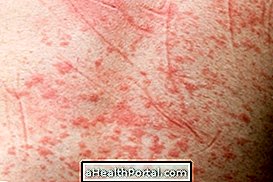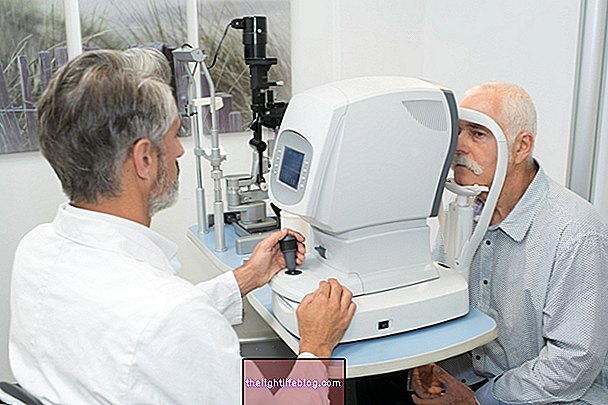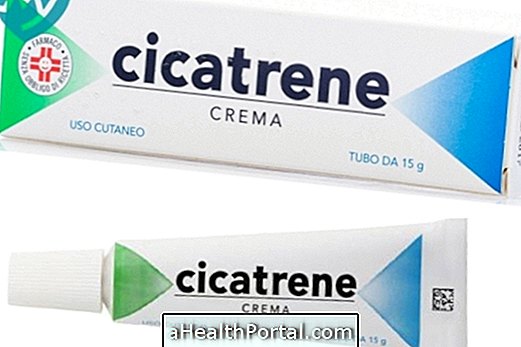Thin needle aspiration (FNA) is the best test to determine if a thyroid nodule is benign or malignant, which is essential information to determine the type of treatment that should be performed next.
Usually thyroid nodules that are small and benign do not need treatment, but in case of large but benign nodules surgery may be required for their removal, and in case of malignant nodule, the thyroid must always be removed because it represents a cancer. Learn all about thyroid cancer.
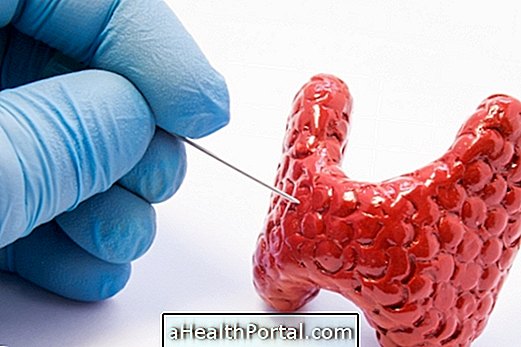
When the FNA is requested
The doctor requests a Fine Needle Aspiration Tube when the ultrasound examination shows:
- A thyroid nodule over 0.5 cm and less than 1 cm suspected to be malignant,
- All nodules larger than 1 cm, being hypoechoic, complex or spongiform;
- When there is a relative of the first degree with thyroid cancer;
- When the person was exposed to radiation in childhood or adolescence;
- Nodule with apparent invasion outside the thyroid;
- In case of suspected lymph node during the ultrasound.
When there is more than one nodule in the thyroid, all of them should be examined by removing solid and liquid parts from all for laboratory analysis.
How is PAAF made?
Fine needle aspiration can be done at the same time as the thyroid ultrasound, with better results, or only with palpation of the nodule. When the FNA is done, small pieces of the tissue that compose the nodule are removed for analysis in the laboratory, and during this examination the liquid part can also be removed for analysis and to decrease the size of the nodule.
The FNA hurts a little but the pain is bearable, and the person exits the examination with only a band-aid covering the puncture site. It is not possible to perform this examination under anesthesia, because the only anesthesia that would be effective is general anesthesia, whose risks do not justify its accomplishment during this examination.
People taking anticoagulant medications such as AAS, heparin, or varfina should stop taking these medications for 3 days before performing this puncture.
How to understand the results
The results of Fine Needle Aspiration, according to the Bethesda System classification, may indicate:
| Category | What does it mean | Recommendation |
| Category I: | Non-diagnostic, unsatisfactory sample | Repeat FNA with ultrasound |
| Category II: | Benign nodule: colloid goiter, hyperplastic nodule or lymphocytic thyroiditis | at medical discretion |
| Category III: |
Atipias, follicular lesion of indeterminate meaning, that is, inconclusive | Repeat FNA in 3 months and consider surgery |
| Category IV: | Suspected for follicular neoplasia or follicular neoplasia, that is, inconclusive | Ponder the surgery |
| Category V: | Suspicion for malignancy | Surgery indicated to remove only 1 lobe or total thyroid withdrawal |
| Category VI: | Malignant | Recommended removal of thyroid with surgery |
These are just recommendations, so doctors endocrinologist or head and neck surgeon can decide if there is a need to repeat the exam between 3 to 6 months to compare the results and evaluate if the nodule has grown, for example, and then decide if it is I need to perform the surgery to remove the thyroid and perform the treatment with Radioactive Iodine, if it is the case.
Know more:
- Surgery for removal of thyroid
- Radioactive iodine: what is it for, effects on the body and risks
Where to make and price
FNA can be performed in imaging laboratories, clinics and hospitals. The price of this exam varies from 700 to 1500 reais, but can be done by the SUS or the private health plan, in some places, when the exam needs to be repeated in 3 months no new payment is necessary, but it is important to confirm this information before to take the exam.




